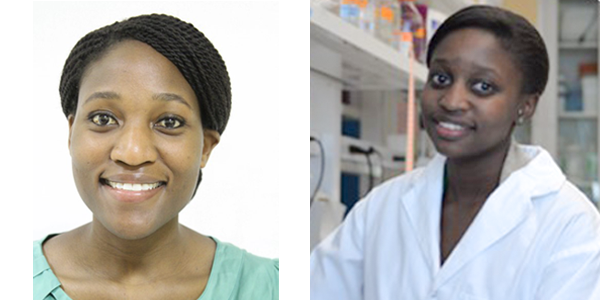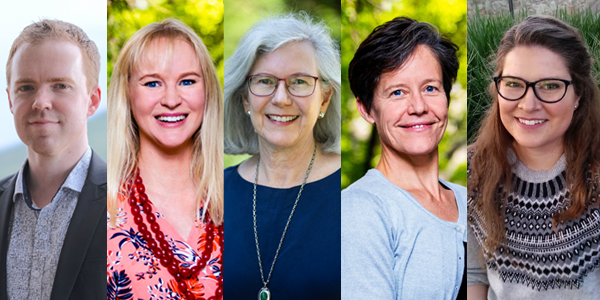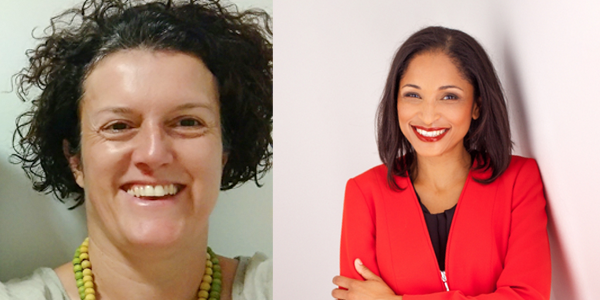足球竞彩app排名 vaccine research ALIVE and thriving at Wits
- Wits University
The Wits African Leadership in Vaccinology Expertise (ALIVE) has awarded research grants for cross-disciplinary 足球竞彩app排名 vaccine-related projects.
ALIVE and the University Research Committee awarded funding to three 足球竞彩app排名 vaccine-related projects during February and April 2021, in virology, human genetics, and public health respectively.
Investigating how the 足球竞彩app排名 virus dodges human defences

As the Beta variant dominated 足球竞彩app排名 infections in South Africa during the second wave and the Delta variant currently dominates the third wave, it is important to understand the impact of emerging variants on the current SARS-COV-2 vaccines available.
The SARS-CoV-2 spike protein is the main target of neutralizing antibodies. It’s this spike protein – the ‘corona’ crown of the virus – that facilitates entry into host cells and infection. This spike protein is also continually mutating and ‘escaping’ the antibody response that our bodies produce to fight off infection.
Understanding how this spike protein behaves as it mutates, and how this affects the antibodies we need, is important to vaccine design because these mutations may alter the effectiveness of vaccines and therapeutics currently in development.
Dr Thandeka Moyo-Gwete in Virology, School of Pathology at Wits and a Senior Medical Scientist in the Centre for HIV and STIs at the National Institute for Communicable Diseases leads a project on mapping SARS-CoV-2 spike determinants of escape from antibodies.
“This project harnesses our existing highly successful HIV-focused expertise and established methodologies in our lab to rapidly identify key viral mutations emerging in SARS-CoV-2 and to determine the neutralizing responses to these viral strains in the context of the 足球竞彩app排名 epidemic in South Africa,” says Moyo-Gwete, whose research interests started in understanding the nature of broadly neutralizing antibodies that target HIV and HIV vaccine development.
The results from this study will provide insight into the effectiveness of SARS-CoV-2 vaccines in the presence of several viral variants circulating in South Africa.
This research grant facilitated the postgraduate work of Ms Bliss Musvosvi, an MSc (Med) Vaccinology candidate at Wits. “My goal is to serve and help achieve public health objectives through reduction in the mortality and morbidity of vaccine preventable diseases. Other areas of interest include vaccines for the prevention and control of emerging and re-emerging infectious diseases,” she says.
How does the genetic variation of South Africans influence 足球竞彩app排名 infection and severity?
Michèle Ramsay, Director of the Sydney Brenner Institute for Molecular Bioscience (SBIMB) and Professor in the Division of Human Genetics at Wits, along with Dr June Fabian, nephrologist and Research Director at the Wits Donald Gordon Medical Centre (WDGMC) are co-Principal Investigators on the Host genomic susceptibility to COVID-19 in Black South Africans (COVIGen-SA) project.

The way an individual experiences and responds to 足球竞彩app排名 differs from person to person; some people get severe disease, some die, and others present with very mild symptoms or are asymptomatic. These varying clinical outcomes are due partly to the genetic factors of the host (infected person).
Understanding how genetic variation affects the way people respond to 足球竞彩app排名 could inform vaccine development, and improve disease management and therapeutics. Research studies in this area relate to the field of genomic medicine, where the approach to treatment is informed by the person’s genetic variation.
Globally, efforts are underway to describe the role that host genetic variation plays in infection by the novel coronavirus and progression to 足球竞彩app排名. However, African populations are historically under-represented in global host genetic studies, and this threatens to worsen existing health inequalities.
The COVIGen-SA project is a unique and dedicated initiative to understand the role of host genetic factors in Black South Africans.
“Through collaborations, we aim to collect DNA samples from over 5000 Black South African participants, with varying 足球竞彩app排名 disease severity. This will serve as a resource for current and future studies investigating the role of host genetics in 足球竞彩app排名 and could inform more effective treatment and prevention strategies,” says Ramsay, who is a Research Chair on Genomics and Bioinformatics of African populations.
Dr Harriet Etheredge is a medical bioethicist and health communication specialist at the Wits Donald Gordon Medical Centre. She is responsible for implementing and overseeing a robust ethical and regulatory structure for COVIGen-SA.
Dr Andrew May, a postdoctoral fellow in the SBIMB will coordinate the COVIGen-SA project. May’s research interest is in how genetic variation impacts individual differences in health and behaviour.
Ms Heather Seymour will conduct doctoral research in the COVIGen-SA project. Her PhD in the SBIMB follows her MSc (Med) dissertation on Mutation profiling in South African patients with Cornelia De Lange syndrome phenotype using targeted next generation sequencing.
足球竞彩app排名 vaccine hesitancy among healthcare workers
Dr Janan Dietrich, Director of the Biobehavioural Research Centre in the Perinatal HIV Research Unit (PHRU), and Dr Fiona Scorgie, an anthropologist and Senior Researcher at the Wits Reproductive Health and HIV Institute (Wits RHI) are co-Principal Investigators on a study researching 足球竞彩app排名 vaccine hesitancy amongst healthcare workers in South Africa.

In 2019, even before the 足球竞彩app排名 pandemic, the World Health Organization identified vaccine hesitancy as one of the top 10 threats to global health. Now, evidence is emerging globally of vaccine hesitancy (delay or refusal of vaccination despite availability of vaccines) in relation to newly developed 足球竞彩app排名 vaccines. Vaccine hesitancy has the potential to undermine vaccination efforts to bring the pandemic under control in South Africa.
Healthcare workers have been prioritized for vaccination in South Africa and are likely to be key in promoting vaccination amongst the public and countering misinformation about the vaccine. However, the attitudes of South African healthcare workers to 足球竞彩app排名 vaccination have yet to be studied.
“We aim to explore knowledge and acceptability of 足球竞彩app排名 vaccines among healthcare workers – both as recipients and providers of the vaccine – and to develop a novel method for addressing vaccine hesitancy in this population using AI [artificial intelligence] technology,” says Scorgie, a social anthropologist with expertise in vaccine acceptance and qualitative research.
The study combines multinational and complementary expertise across the social sciences, clinical trial expertise, digital health, AI, and biostatistics at Wits.
Data will be collected through a quantitative online survey, qualitative interviews, and a review of online vaccine sentiments. Categorised according to belief awareness; perceptions of vaccines; vaccine safety; and disease outbreaks, these data will inform the development of a targeted, vaccine-specific chat-bot to address vaccine hesitancy.
“Local online data will also be accessed with assistance from the Vaccine Confidence Project full-text media archive, and historical and real-time anonymized Google, Twitter and Facebook data via the Meltwater Social Media Monitoring platform,” says Dietrich, who is a research psychologist with experience in HIV vaccine research and digital health. “We envisage that the online chat-bot will address vaccine hesitancy by providing accurate, transparent information to healthcare workers and to members of the public.”

